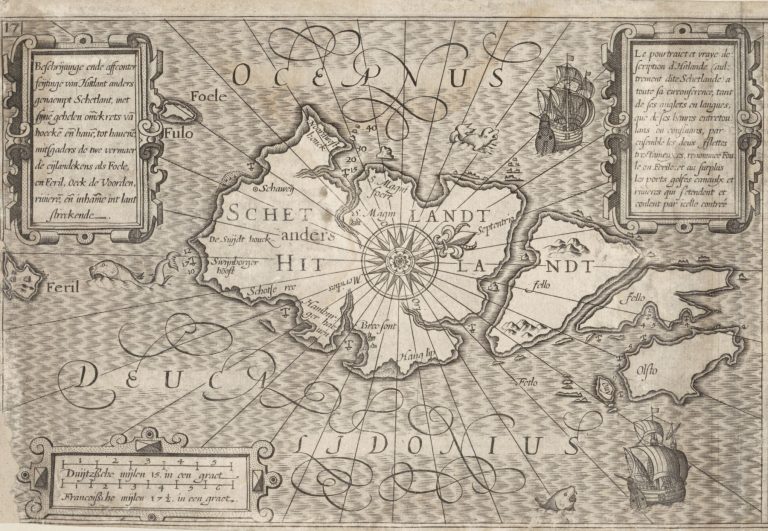
by Kevin James and Melissa Turner
Scotland has always had a geographically expansive range of global engagements: its imprint is discernible around the world—not just in the form of permanent settlement, much as its global impact has often been measured through a count of its temporary or permanent migrants. The exploits of the Scot Abroad has animated scholarship, much of it laudatory—celebratory even—and uncritical in tone. The Scots, we have been told, built not only specific countries, but much of the modern world.
The story, of course, is much more complex.
Scotland has been at the heart of complicated commercial and military entanglements, and nuanced intercultural encounters, in Europe, North America, Asia and farther afield, for good and for ill. Because of its global footprint—unusually extensive for a small nation in some ways, but in other ways not exceptional—Scotland is bound up in current debates over slavery, commemoration, and the varied impacts of encounters over many centuries. Because of the extent to which Scotland is interwoven within the fabric of histories of other countries, there is no one single narrative of Scotland’s global reach. Of late there has, however, been a widespread and welcome departure from the pietistic narratives of Scottish exceptionalism and success abroad, which so nourished diasporic identities, and indeed much scholarship, in favour of more nuanced interpretations of how Scots and Scotland shape and have shaped, but are also shaped by, interactions with other cultures and other countries. The chronology, form, and the ultimate consequences of Scottish industrialisation, de-industrialisation, rural depopulation, emigration and immigration, and politics, have been picked apart in thoughtful (sometimes comparative) analyses which emphasise the diversity of these experiences. They chip away at old Shibboleths—the ‘Highland Clearances’ come to mind, but there are many others besides. As scholars of Scottish history and culture embrace the challenge of critically engaging with Scotland’s past and present, the International Review of Scottish Studies aims to be at the centre of these dialogues, and to participate in communicating them across the world.
In 2023 the editorial team at the International Review of Scottish Studies and Edinburgh University Press launched a new partnership, providing a new berth for a publication that had for almost fifty years been published in Canada by the University of Guelph, which boasts one of the most research-intensive Centre for Scottish Studies, one of the largest graduate programmes, and one of the most extensive printed and archival collections pertaining to Scotland in the world. More recently, the Scottish Studies Foundation, a charitable body with a long record of supporting educational initiatives in Canada, supported the Review’s publication.
We are proud to be a place where faculty and students have engaged in deep, critical scholarship over many decades, nurturing ties to the global community of scholars of Scotland. We want to extend that reach, and publish more articles engaging with Scotland’s past and present, in a variety of formats, from research articles to exhibit reviews to research notes to interviews, for a broad audience of readers. We are committed to placing the Review at the centre of innovative, critical research uncovering Scotland’s past and exploring its future, in a global framework, and communicating scholarship in history, literature, film, politics, contemporary migration studies, and other areas.
We are animated by an emphatic commitment not to act as a vehicle for pietistic celebration, but rather as a publication for readable, critical research that pays special attention to Scotland’s historical and contemporary place in the world, and offers space for scholars of Scotland’s history and culture, both inside and outside Scotland, to share their ideas, dialogue, and instigate new debates and research directions. That this mandate comes from a Review founded outside Scotland makes our mission all the more salient to ongoing debates about the country’s past, its present, and its ambitions. It also underscores our commitment to exploring Scotland’s imprint on the world, and the world’s impact on Scotland.
About the journal
The International Review of Scottish Studies is the leading interdisciplinary journal for international scholarship on Scottish history and culture, with a mission to create a space for scholars of all career levels exploring Scotland’s past and present.
Sign up for TOC alerts, subscribe to IRSS, recommend to your library, and learn how to submit an article.

About the editors
Kevin James is Editor of the International Review of Scottish Studies. He holds the Scottish Studies Foundation Chair and is Professor of History at the University of Guelph, where he is also Director of the Centre for Scottish Studies. His current research focuses on nineteenth- and early-twentieth-century Scottish travel history.

Melissa Turner is Managing Editor of the International Review of Scottish Studies. She works in the Centre for Scottish Studies at the University of Guelph in the position of Administrative Coordinator. Melissa works closely with the Director of the Centre, faculty, students, and partners to support the Centre’s activities and initiatives.





